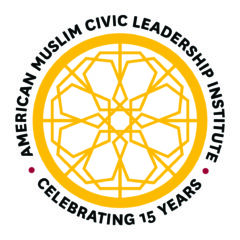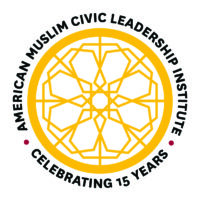American Muslims are not one unified community. How did AMCLI deal with diverging perspectives and expectations among participants?
Nadia: I would say the moments that were scariest to me were when something came up that was a lightning rod in the community. Almost each year we had a different, big issue.
Each time I remember the fear that diving into it may actually break the program. The intensity and the emotions around the issue could end up making people walk away.
But each time, we chose to engage and dive in because of the belief that we can’t keep walking past these issues without addressing them, and addressing them is actually about building communities.
One year we had a big conversation where something happened that triggered a lot of emotions that broke down along a gender line. And rather than continue with the rest of our program as is, we needed to collectively address it. That meant naming it, creating the space to have the conversation, making sure everybody was heard and trying not to expect closure, because these are decade-, century-long challenges and tensions.
We said, “We as a community are going to wrestle with this. It’s going to be messy; there are going to be a lot of emotions. But hopefully in the end everybody will have a little more insight into why that was so triggering, and figure out how we can just make it better moving forward, whatever better looks like for this community.”
I think as a community we ended up better for it. We learned how to engage in uncomfortable conversations. It’s still a long way to go, but I think one of the things I am most proud of is just how we are able to do that, even though it wasn’t always perfect. But I think we tried to really move in that direction.
Brie: We are as a group, as a culture, out of practice with the habits of what it takes to be together. And we’re out of the habits of what it takes to sustain relationships.
Every relationship has problems. We have disagreements because we’re fundamentally different people. If the only thing that you can stomach are people that are like you—and what’s interesting is they may not be like you in terms of skin color or gender, though they may be like you in terms of ideology or language—if that’s the only thing that we find acceptable, then we really narrow our sphere of influence.
How do we be okay with who we are and maintain relationships that can be a productive place where we grapple with those tensions, even if they don’t get resolved?
That’s a fundamental human practice, and one that we are sorely out of practice about doing. We don’t have the places where we engage with that. And when we do, it’s often in a very “scoring points” sort of way. It’s about being wounded and then wounding others rather than getting to understanding. I’ve remained to this day, a deep believer in the importance of dialogue.
Nadia: To give a concrete example of that, I remember there was a time when somebody in the group wanted to end every session with a duat, with a prayer. And then all of a sudden, some other people in our group were like, “I didn’t sign up for that. I don’t want to end every session with a prayer.” Right there in that moment, you saw very different interpretations of what it meant to be in community with each other and the rituals that go along with that.
We had a chance to have a moment to talk that out and see what everyone wanted and what they were comfortable with. And I think our resolution to it was an example of making sure we can stay in community and dialogue, but also allow people to practice in their own way.
We said everybody in the room has to be afforded a choice. Nothing should feel compulsory. There needs to be an intentional pause where somebody doesn’t feel judged if they don’t stay. There’s a formal end to the session. Then those who want to then continue and close in a duat need to migrate to another space in the room. And they collectively can close in a duat.
It created a more intentional way to make sure everybody was comfortable and still in community with one another. That’s a tiny example of how we definitely have norms and ways of working, but we had to come up with new ways of being together, depending on each group. How do we make sure that everyone feels like they can be in community and dialogue without their own ways of being in the world getting trampled upon or, or forcibly swayed one way or another?

